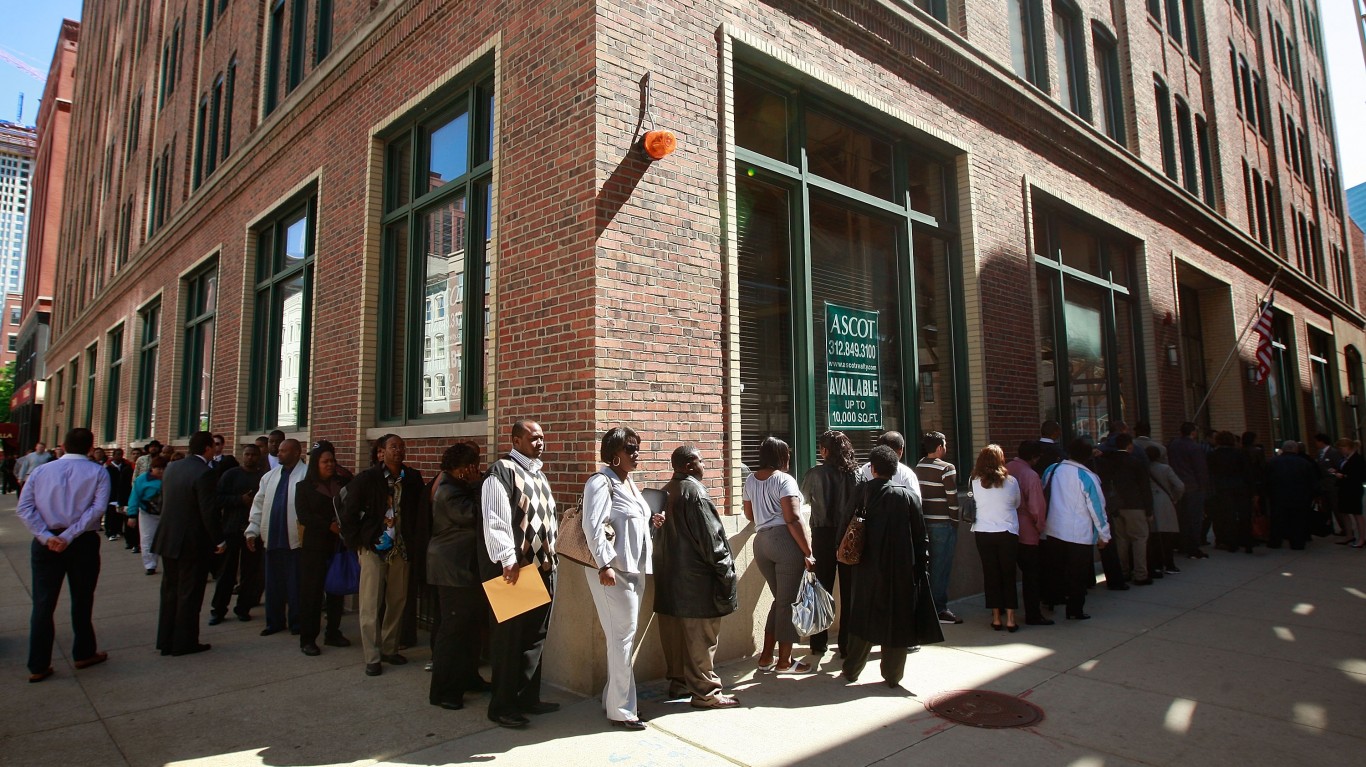
The December jobs reports received mostly favorable reviews. Employment increased by 233,000 people. The jobless rate dropped to 3.5%, which ties a five-decade low. (These are the states where the unemployment rate is at an all-time low.)
However, most economists believe a recession is coming or may have already hit. The cause is the Fed’s rate increase meant to bring inflation down substantially. The consensus is that the unemployment rate will need to rise to 5%. That is close to 2.5 million jobs lost.
The Great Recession posted the highest jobless rate since The Great Depression, as unemployment hit 10% in October 2009. The early effect of the COVID-19 pandemic job loss was when the unemployment rate spiked to 14.7%, and 20.5 million people lost their jobs in April 2020. The COVID-19-driven recession was, however, an anomaly because core economic problems did not cause it. (These are the states recovering the fastest from high unemployment.)
The CPI has been above 8% in many months this year compared to 2021. The Fed’s target inflation rate is 2%, representing a breathtaking downward change. However, 2% was the inflation rate for almost a decade. The Fed believes that high inflation could wreck the economy for years. It is willing to take what it believes is a short period of pain in the jobs market to buy a better financial future.
The civilian labor force in the US is about 165 million. Each 1% change means about 1.6 million jobs. While 5% would be very painful, many leading experts think it will not be enough to halt the rise in costs of everything from butter to clothes.
Larry Summers, the former Treasury Secretary, and current Harvard economist, believes the jobless rate will need to hit 7% to get inflation back to the Fed’s target. Suddenly, the number of people needing to be out of work jumps closer to 4 million.
Jobs will be lost in 2023. The primary debate is how many. Some jobs will disappear, while others will evolve into something else — these are the 22 jobs with the fastest-changing skill requirement.
The Average American Has No Idea How Much Money You Can Make Today (Sponsor)
The last few years made people forget how much banks and CD’s can pay. Meanwhile, interest rates have spiked and many can afford to pay you much more, but most are keeping yields low and hoping you won’t notice.
But there is good news. To win qualified customers, some accounts are paying almost 10x the national average! That’s an incredible way to keep your money safe and earn more at the same time. Our top pick for high yield savings accounts includes other benefits as well. You can earn up to 3.80% with a Checking & Savings Account today Sign up and get up to $300 with direct deposit. No account fees. FDIC Insured.
Click here to see how much more you could be earning on your savings today. It takes just a few minutes to open an account to make your money work for you.
Our top pick for high yield savings accounts includes other benefits as well. You can earn up to 4.00% with a Checking & Savings Account from Sofi. Sign up and get up to $300 with direct deposit. No account fees. FDIC Insured.
Thank you for reading! Have some feedback for us?
Contact the 24/7 Wall St. editorial team.


